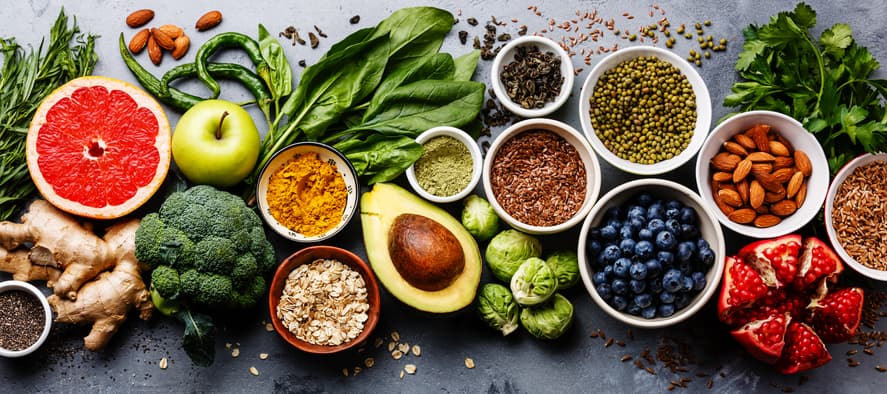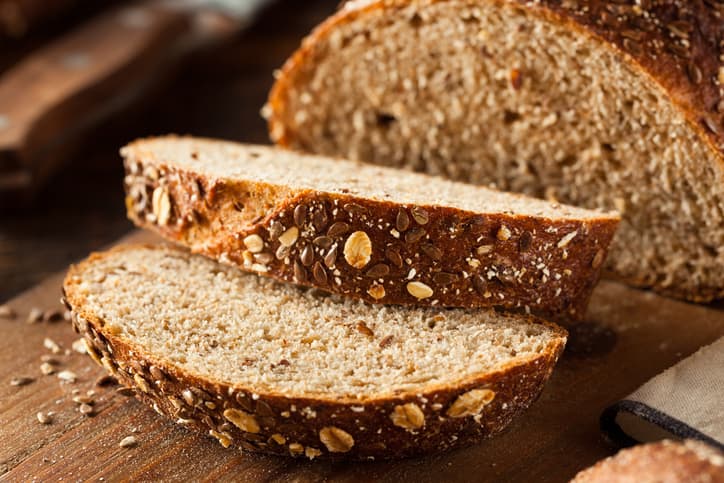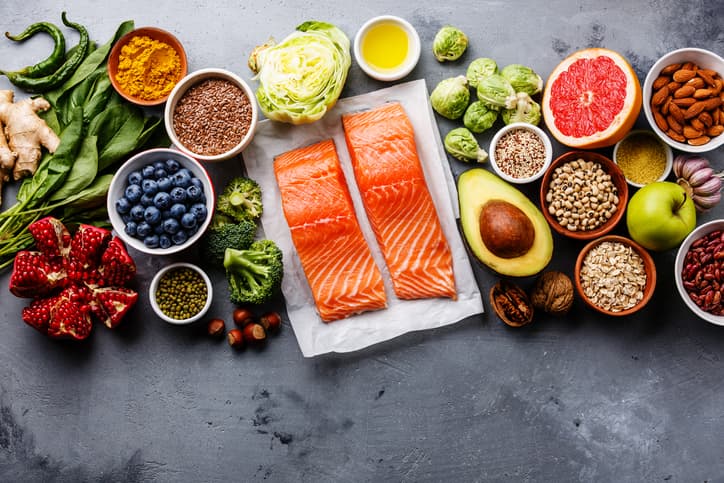We all know the importance of a healthy diet, but do you know specifically how eating right can decrease your chances of developing heart disease? It’s difficult to make substantial changes in your diet if you’ve been allowing yourself to consume unhealthy foods for a while. However, the difference in your overall health and how you’ll feel will be more than rewarding.
Even the healthiest eaters can still make some changes to their diet, so let’s take a look at some heart-healthy diet tips and recommendations.
1. Stay On Top of Your Weight

Overindulging is never a good idea, regardless of what you’re eating. Putting too much in your body will result in the overconsumption of calories and weight gain. Obesity is a substantial problem in the U.S., with more than 113 million Americans¹ expected to be obese by the end of 2022.
Obesity can increase your risk of a number of health issues, including:
- High blood pressure
- Increasing your chance of developing an abnormal heart rhythm
- Type 2 diabetes
- Sleep apnea
- Cardiovascular disease
- Heart attack and stroke
To help you stay on track, try serving yourself a small plate of food when it’s time to eat and make sure that you don’t go for seconds. Load up on low-calorie, nutrient-dense foods. Stay away from foods high in sodium, which can quickly raise your blood pressure.
If you’re not sure what a standard portion size is, refer to your food’s packaging. A typical serving of meat is usually about three ounces, with pasta or rice being about ½ cup.
2. Increase Your Consumption of Fruits and Vegetables
Fruits and vegetables are extremely rich in nutrients that are great for cardiovascular health. Generally, they’re also low in calories and sugar, so they can help you lose weight without having to feel hungry all the time.
You should try to make vegetables the base of your meal. For example, a salad with lean protein on it or a stir fry that focuses on a variety of vegetables with a little bit of rice or noodles are great options.
If you’re prone to snacking, which often leads to overeating, try to keep some diced fruit or vegetables in your refrigerator. You can grab a handful of those rather than reach for a bag of chips when you hit that mid-afternoon or evening craving. Consuming too much fruit has been shown to lead to a prediabetic or even a diabetic state. I have seen this in my own patient population.
3. Choose Whole Grain Options
Whole grains are always the best option when it comes to products like bread, cereals, and other foods high in carbohydrates. Refined grains lack nutrients and aren’t very healthy for your heart. Choose things like quinoa, barley, brown rice, and whole wheat.
Try to stay away from refined carbs and white flour products like:
- White bread
- White rice
- Crackers
- Frozen waffles
- Pastries
- Pies, cakes, and other sweet desserts
4. Consume More Healthy Fats
Not all fats are bad for the body. Saturated and trans fats are what you want to avoid if you’re concerned with heart disease or high cholesterol. High cholesterol is a serious issue that can put you at risk of a stroke or heart attack. Healthy fats that you can incorporate into your diet include:
- Olive oil
- Avocado
- Nuts and seeds
- Yogurt
- Tofu
- Fish
Fish is an excellent heart-healthy addition to your diet. Most fish is very high in omega-3 fatty acids, which are ideal for your heart. Salmon, herring, and mackerel are great choices. You can also get your omegas from things like nuts, beans, and flaxseeds.
If you need to cut back on your unhealthy fats, stay away from excessive amounts of butter or shortening. If there’s a low-fat substitute available for yogurt, sour cream, or cheese, those are often the healthier options. However, speak to your doctor about the best choices for you.
5. Eat Lean Protein
Protein is an essential building block for producing energy in the body. That’s why choosing your protein source is so important for your health. Chicken, fish, and eggs are often recommended as the leanest and healthiest protein sources to add to your diet. However, stay away from things like fried chicken, which takes a healthy piece of meat and raises its fat content by breading and deep-frying it.
Take Control of Your Heart Health With a Preventative Heart CT Scan
If you are taking a proactive approach to your heart health, contact our team at the Preventative Diagnostic Center in Las Vegas. You can schedule an appointment for a heart CT scan, which will give you an accurate idea of the current health of your heart. You can discuss your cardiovascular health with your doctor and put a plan together to help you with the necessary changes to your diet.
Sources:
¹Ellis, M. US obesity rates on the rise: 113 million by 2022. Medical News Today. Retrieved 10 May 2022.




